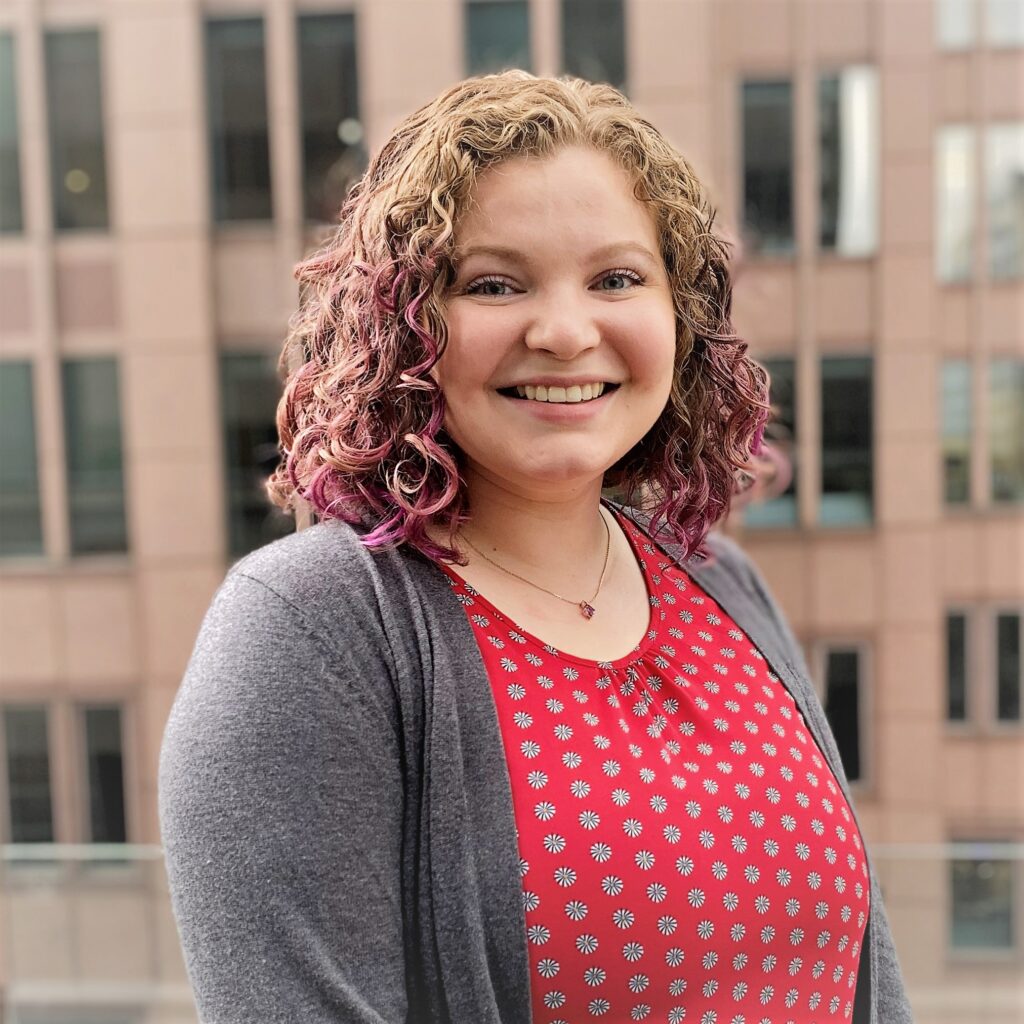Our latest Get To Know Us team spotlight features Ashley Kafton, Associate, who joined Fairmount in Fall 2021. Her work focuses on research and analysis, writing, and project organization for a range of Fairmount fundraising and planning clients, and we’ve quickly come to rely on her Excel and Google Docs wizardry! Ashley brings local and international insight on nonprofits and social need through her global studies and her experience developing equitable and responsive grantmaking processes at the United Way of Lehigh Valley. Ashley earned a Bachelor of Arts in Economic Development from Templeton Honors College at Eastern University and a Master of International Studies in International Development from Ohio University.

FV: Tell us what brought you to nonprofit consulting. What does Fairmount’s social impact mission mean to you?
AK: Prior to joining the Fairmount team, I volunteered at and learned from nonprofit organizations all over the world. The one common thread that transcended geography, history, and focus area was the need for increased capacity in order to achieve their mission. Too often I heard from organizations with the desire to expand programs but lacking the time or expertise to find new funding sources. Others weren’t sure of their impact because they didn’t have a background in data collection and evaluation.
I loved the idea of helping fill these knowledge and capacity gaps at organizations, and sort of stumbled into nonprofit consulting from there. Fairmount’s social impact mission of “positioning nonprofits to grow and thrive” is so critical because it directly addresses capacity gaps and gives nonprofits the tools, resources, and support to deepen their impact. Not only does this make organizations more effective, but it reverberates into creating a more just and equitable community.
FV: What are you learning about the sector through your work?
AK: The nonprofit sector often serves as a testing ground for solutions to social problems. Organizations develop innovative ideas and unique approaches on how to best serve their communities, which can generate really actionable programs that spur social change more effectively. Part of my responsibilities is to notify everyone at Fairmount when RFPs come out that could interest clients, and it was surprising just how much funding is out there to test new ideas and use nonprofits as a vehicle for research. Every organization approaches its community’s needs differently because every community is different, but it’s exciting to see the effort to increase the sector’s understanding of what types of programs or projects are most impactful.
FV: How does your past experience in grantmaking and economic development inform how you approach your current Fairmount projects?
AK: My graduate research in economic development focused on using nonprofits and their programs as evaluative tools to better understand communities, and that perspective has been incredibly beneficial in my client work. Each organization plays a specific role in Philadelphia’s ecosystem, and each program addresses either a specific need or seeks to support a specific group. This mental framework has helped me understand the missions of Fairmount’s clients and cater my research and grantwriting to better assist in furthering their specific goals. In my previous job, I was able to help shift a funder’s grantmaking process to become more equitable and really interrogate the funder/grantee relationship. This perspective has been so beneficial when trying to gauge the ‘fit’ of a funder for clients and gave me valuable context for how and why a funder might shift their giving priorities.
FV: Nonprofits are increasingly focusing their efforts on addressing root causes of systemic inequality. How are your clients responding, and what types of resources and partnerships do they need to achieve the impact they seek?
AK: Several of my clients have been reevaluating existing programs and gathering community input on how to address the root causes of community needs more directly, which are often rooted in a history of racism. Clients are deeply evaluating their own organizational practices and culture, looking at how they themselves contribute to systemic issues. I think the major crux for this to be a successful and transformational process is for funders, both governmental and from private philanthropy, to understand that equity work is not a fad or temporary focus. It will take a long time to not only abolish unequitable systems, but to also create new transformative ones that can help heal the community. Programs and projects need to look to the future, not just ameliorating current symptoms of the problem. Funders need to commit to being in this work for the long haul and have their funding reflect that. Additionally, organizations cannot do this difficult work alone and need to partner with each other to really produce transformational initiatives. The sector as a whole needs to come alongside each other and the community to create a sustainable change.
FV: As a transplant to Philly, what are you enjoying and discovering about the city?
I went to college on the Main Line and I have family in the city, so I was already familiar with some of Philly’s more famous aspects. It’s been wonderful to get to know the smaller, local places – I visit the Lebanese café near my apartment about once a week! The weather has been getting warmer, so I’m getting off the bus a few blocks early and it’s so nice to see everyone out walking and the trees starting to bud. I’m a big foodie, so the endless variety of restaurants is so appealing – I’m glad we’re back in the office and I’ll get to sample all the places around Center City.
